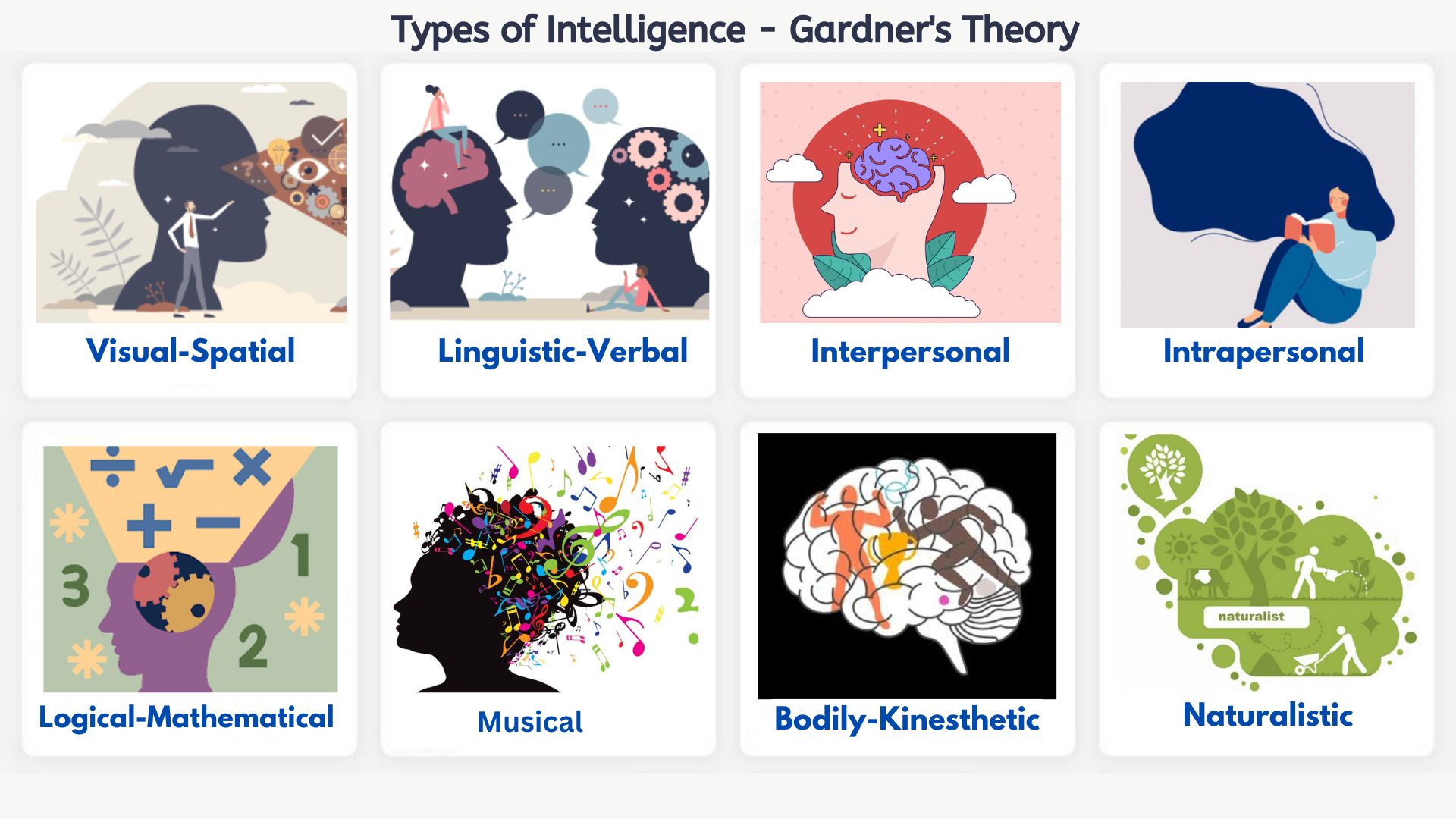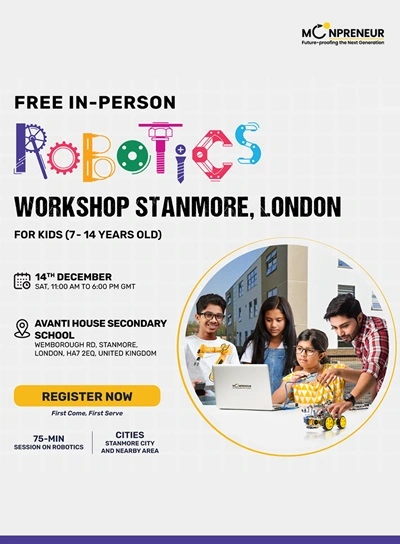Intelligence is not just about excelling in math or science. It’s a multifaceted concept, with various forms. Understanding these different types of intelligence is a powerful tool that can help us appreciate our strengths and the strengths of others, empowering us with knowledge about the diversity of human intellect.
What is Gardner’s Theory?
Gardner’s theory is a revolutionary concept that challenges the conventional notion of intelligence being solely measured by IQ tests. Instead, it introduces the idea of multiple intelligences, each representing a unique way of processing information and solving problems. This perspective can enlighten us and encourage open-mindedness in understanding intelligence.

Here’s a comprehensive guide to the 13 types of intelligence and what will be the career options you can choose in the same:
1. Logical-Mathematical Intelligence
This intelligence involves the ability to analyze problems rationally, perform mathematical operations, and investigate scientific questions. Those strong in this area excel in mathematics, physics, and related fields, demonstrating exceptional logical reasoning and problem-solving skills.
Career Options: The world of opportunities for those with Logical-Mathematical Intelligence is vast and diverse. From Mathematician to Scientist, Engineer, Data Analyst, and Software Developer, there are numerous paths to explore and excel in.
2. Linguistic Intelligence
Linguistic Intelligence is a powerful tool that refers to a sensitivity to spoken and written language. Individuals with this intelligence are not just effective communicators and writers, they are influencers who can express complex meanings through language and analyze verbal and nonverbal communication.
Career Options: Writer, Journalist, Public Speaker, Teacher, Lawyer.
3. Spatial Intelligence:
This involves the ability to think in three dimensions. Individuals with spatial solid intelligence can manipulate and create spatial patterns, making them suited for careers in architecture, art, and navigation.
Career Options: Architect, Graphic Designer, Urban Planner, Pilot, Sculptor.

4. Bodily-Kinesthetic Intelligence:
This intelligence is the capacity to use one’s body effectively to solve problems or create products. Athletes, dancers, and surgeons often display high bodily-kinesthetic intelligence, showcasing a profound and fascinating connection between mind and body.
Career Options: From the grace of a dancer to the precision of a Surgeon, the strength of an Athlete, the healing touch of a Physical Therapist, and the creativity of a Craftsman, the world of Bodily-Kinesthetic Intelligence offers a diverse range of career paths.
5. Musical Intelligence:
This encompasses the ability to interpret, compose, and appreciate musical patterns. Individuals with musical intelligence can easily recognize musical tones, rhythms, and timbres, often excelling as musicians or composers.
Career Options: Musician, Composer, Music Teacher, Sound Engineer, Music Therapist.

6. Interpersonal Intelligence:
This refers to the ability to understand and interact effectively with others. People with strong interpersonal intelligence excel in communication and empathy, making them successful in careers like counseling, teaching, and leadership.
Career Options: Psychologist, Counselor, Social Worker, Teacher, Sales Representative.
7. Intrapersonal Intelligence:
This form of intelligence is all about personal growth. It involves being aware of yourself, understanding your feelings, and the reasons behind your actions. Those with strong intrapersonal intelligence use their self-knowledge to make good choices and solve problems effectively.
Career Options: Life Coach, Psychotherapist, Researcher, Writer, Philosopher.
8. Naturalistic Intelligence:
This intelligence is marked by a strong awareness of nature and the ability to identify and categorize plants, animals, and environmental patterns. People with naturalistic intelligence often choose careers in fields like biology, environmental science, or conservation, where they can make a significant contribution to the environment, fostering a sense of fulfillment and impact.

9. Emotional Intelligence:
A blend of understanding yourself and others, emotional intelligence is a journey of recognizing and managing your feelings and the feelings of those around you. This skill not only enhances relationships but also fosters personal growth, making it a cornerstone for effective leadership.
Career Options: Human Resources Specialist, Leadership Coach, Mediator, Counselor, Customer Service Manager.
10. Existential Intelligence:
This is the profound ability to ponder over life’s most significant questions, such as the meaning of existence and death. Individuals with existential intelligence often delve into deep contemplation and explore spiritual concepts, inviting a sense of intrigue and deep thought.
Career Options: Philosopher, Spiritual Leader, Writer, Researcher, Social Critic.
11. Creative Intelligence:
The ability to blend thinking with creativity to come up with new ideas and solutions. People with creative intelligence think differently, imagining many possibilities and encouraging innovation in different areas.
Career Options: Innovator, Entrepreneur, Artist, Designer, Marketing Specialist.
12. Collaborative Intelligence:
In a world that is increasingly interconnected, collaborative intelligence is about the ability to work effectively in teams to achieve common goals. This type of intelligence emphasizes the value of teamwork, knowledge sharing, and group decision-making, all of which are crucial for success in the workplace.
Career Options: Project Manager, Team Leader, Community Organizer, Educator, Event Coordinator.
13. Technological Intelligence:
This form of intelligence encompasses the ability to comprehend, manage, and create technology and digital tools. Individuals with robust technological intelligence can swiftly adapt to new software and devices, troubleshoot issues, and leverage technology to find solutions. As technology continues to permeate every industry, those with this intelligence are well-equipped to thrive in today’s job market, instilling a sense of confidence and readiness.
Career Options: IT Specialist, Software Developer, Digital Marketer, Systems Analyst, Data Scientist.

Importance of Multiple Intelligences
It’s important because it questions the old idea of intelligence as just one skill measured by IQ tests. It shows that people can be talented in various areas, suggesting that education should support these different strengths. Instead of only focusing on language and mathematical skills, teaching methods can be adjusted to include all types of intelligence.
Although Gardner’s theory has faced some criticism, its influence on education is significant. It promotes varied teaching styles and helps individuals recognize their unique abilities, resulting in more personalized learning experiences.
Discover Your Leading Intelligence
If you’re interested in discovering your type of intelligence, try taking a quiz or reflecting on your skills and interests. Understanding your unique strengths can lead you to a fulfilling life that aligns with your natural abilities.
By embracing Gardner’s theory, we can appreciate the diverse range of human potential and support one another in thriving in a world that values various types of intelligence.
Recommended Reading: Emotional Intelligence Test – A Questionnaire to Evaluate Your EQ
Conclusion:
The idea of multiple intelligences expands how we see human abilities. Although some critics believe that certain intelligences are more like personality traits than real intelligence, Gardner’s theory is still important. It prompts us to appreciate different strengths and adjust our methods in education and teamwork. By acknowledging and valuing the various types of intelligence, we can gain a better understanding of ourselves and one another, and feel inspired to reach our full potential.
Moonpreneur is on a mission to disrupt traditional education and future-proof the next generation with holistic learning solutions. Its Innovator Program is building tomorrow’s workforce by training students in AI/ML, Robotics, Coding, IoT, and Apps, enabling entrepreneurship through experiential learning.

















I recently read about different types of intelligence and found it eye-opening! Observing my kids, I can see how they excel in different ways—my daughter shows strong spatial intelligence in her creative crafts, while my son’s logical-mathematical intelligence shines through in his robotics projects. It’s amazing to realize how many ways kids can be ‘intelligent’ beyond traditional academics!
I’d love to see even more practical suggestions for nurturing each type—like simple exercises or project ideas. For example, spatial intelligence could be boosted with puzzle activities or creative building projects, while linguistic intelligence might grow with storytelling games. Knowing these activities would help me further engage my kids in learning in a way that aligns with their strengths!